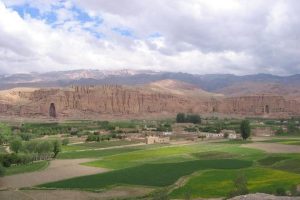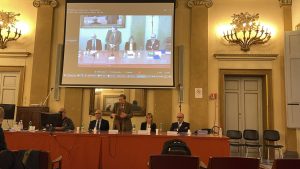The protection and enhancement of cultural heritage are a flywheel for socio-economic development in the fragile contexts, where the Italian Cooperation operates. This approach was at the core of the international Conference that took place in Florence on10th and 11th of November, organized  by the University of Florence (Unifi) with the patronage of the Italian Agency for Development Cooperation (Aics), the support of the Islamabad Aics office and the Aics Rome, Office III^ – Opportunities and Economic Development. How to best capitalize on the skills of all the actors, involved in culture and heritage protection, for sustainable and effective development cooperation was the goal of the Conference.
by the University of Florence (Unifi) with the patronage of the Italian Agency for Development Cooperation (Aics), the support of the Islamabad Aics office and the Aics Rome, Office III^ – Opportunities and Economic Development. How to best capitalize on the skills of all the actors, involved in culture and heritage protection, for sustainable and effective development cooperation was the goal of the Conference.
“The cultural sector, where Italy is very talented, is a priority for the action of Italian cooperation,” said Emilio Ciarlo, Aics Head of institutional relations and communication, who intervened at the conference in Florence. “In many Aics funded projects we cooperate with universities, research centers and civil society organizations, with their experiences and cognizance, as well as Italian companies for the restoration and enhancement of cultural heritage and which are excellences at an international level” he explained. Ciarlo then spoke about the attention Aics pays to human and economic development in these initiatives. “It is not taken for granted that culture promotion is considered a lever for development, but it is a fact since it produces over 3% of global GDP and 6% of the employed,” he said.
The first day focused on the role that cultural heritage has in the mitigation of social and economic fragility and in sustainable development, putting in dialogue with some of the main international sectorial organizations – such as Unesco – and several Italian universities with Aics offices operating in the Middle East and the Indian subcontinent.
The Agency, in its first six years of activity, from 2016 to 2021, invested 70 million euros in the cultural sector, exploiting the Italian capability to generate added value for cooperation. The heads of Offices of the Aics Amman (Emilio Cabasino), Beirut (Alessandra Piermattei), Islamabad (Emanuela Benini), and Rosario Centola, former at Aics Kabul, now closed, illustrated this at the Conference.

The Agency has committed significant resources to programs focused on cultural heritage protection and the promotion of sustainable tourism in
Jordan, a country rich in historical and archaeological sites, particularly in Petra and Jerash. Here Aics has also recently opened a regional institute for restoration, dedicated to the protection and conservation of monuments, and archaeological and tourist sites. The enhancement of cultural heritage and urban development is the core of some initiatives financed in Lebanon as the restoration and redevelopment of the ancient serial in Baalbek and the Tomb of Tire. In Pakistan, the Italian Cooperation funds allowed the reconstruction of the Swat Museum and the restoration of the Buddha of Jahanabad. New excavations conducted in 2021 also brought back to light the Shahi Vishnuite temple in its entirety.
On the second day, a focus was dedicated to the World Heritage site of Bamiyan, in Afghanistan, at the center of a redevelopment project that sees the Department of History, Archeology, Geography, Art and Entertainment (Sagas) of Unifi partner of Aics Islamabad, following the closure of Aics Kabul last year. The morning sessions examined the main cultural heritage protection actions carried out in the area, with the aim of discussing the results achieved until Taliban came into power and highlighting the most critical issues and sectors in need of further interventions.
Key relationships between the protection of cultural heritage, territorial planning and governance, a crucial theme in the Afghan context, characterized by exponential urban and demographic growth, were also examined. The social dimension’s role in the balance between heritage protection and governance paid specific attention. The contributions presented in these sessions were based on the data collected during the field research that took place immediately before, between April and June 2021, the change in the political scenario. A round table on the eventuality of future cultural cooperation actions in Afghanistan marked the closing of the Conference.
An exhibition organized by Imam Rajabi and Ejaz Ahmadi (University of Florence) entitled “Cultural heritage and climate change” as well as the “Bamiyan Living Culture” video installation, organized by LaGes and Studio Azzurro, was shown at the two days Conference.
